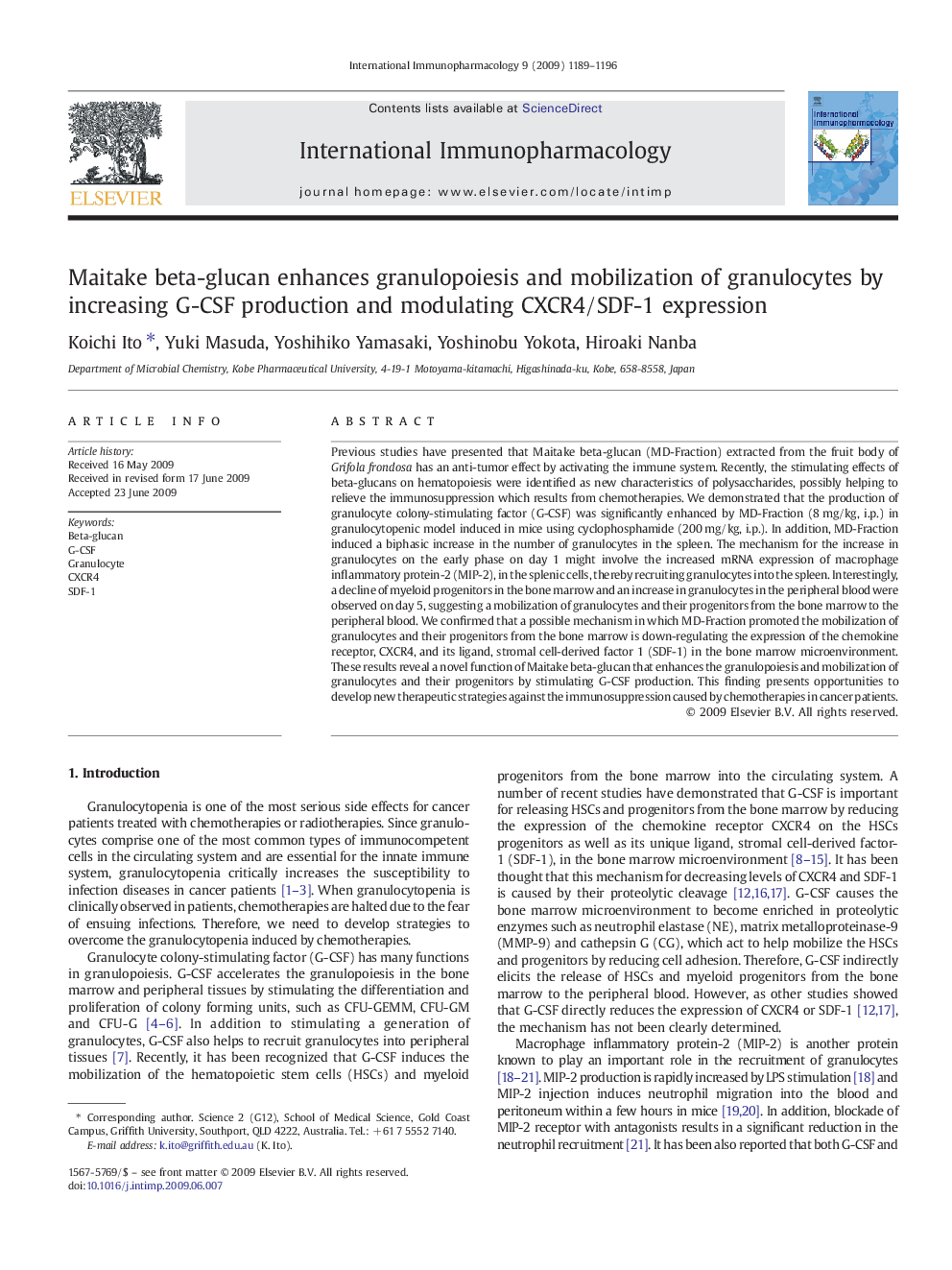| Article ID | Journal | Published Year | Pages | File Type |
|---|---|---|---|---|
| 2541663 | International Immunopharmacology | 2009 | 8 Pages |
Previous studies have presented that Maitake beta-glucan (MD-Fraction) extracted from the fruit body of Grifola frondosa has an anti-tumor effect by activating the immune system. Recently, the stimulating effects of beta-glucans on hematopoiesis were identified as new characteristics of polysaccharides, possibly helping to relieve the immunosuppression which results from chemotherapies. We demonstrated that the production of granulocyte colony-stimulating factor (G-CSF) was significantly enhanced by MD-Fraction (8 mg/kg, i.p.) in granulocytopenic model induced in mice using cyclophosphamide (200 mg/kg, i.p.). In addition, MD-Fraction induced a biphasic increase in the number of granulocytes in the spleen. The mechanism for the increase in granulocytes on the early phase on day 1 might involve the increased mRNA expression of macrophage inflammatory protein-2 (MIP-2), in the splenic cells, thereby recruiting granulocytes into the spleen. Interestingly, a decline of myeloid progenitors in the bone marrow and an increase in granulocytes in the peripheral blood were observed on day 5, suggesting a mobilization of granulocytes and their progenitors from the bone marrow to the peripheral blood. We confirmed that a possible mechanism in which MD-Fraction promoted the mobilization of granulocytes and their progenitors from the bone marrow is down-regulating the expression of the chemokine receptor, CXCR4, and its ligand, stromal cell-derived factor 1 (SDF-1) in the bone marrow microenvironment. These results reveal a novel function of Maitake beta-glucan that enhances the granulopoiesis and mobilization of granulocytes and their progenitors by stimulating G-CSF production. This finding presents opportunities to develop new therapeutic strategies against the immunosuppression caused by chemotherapies in cancer patients.
